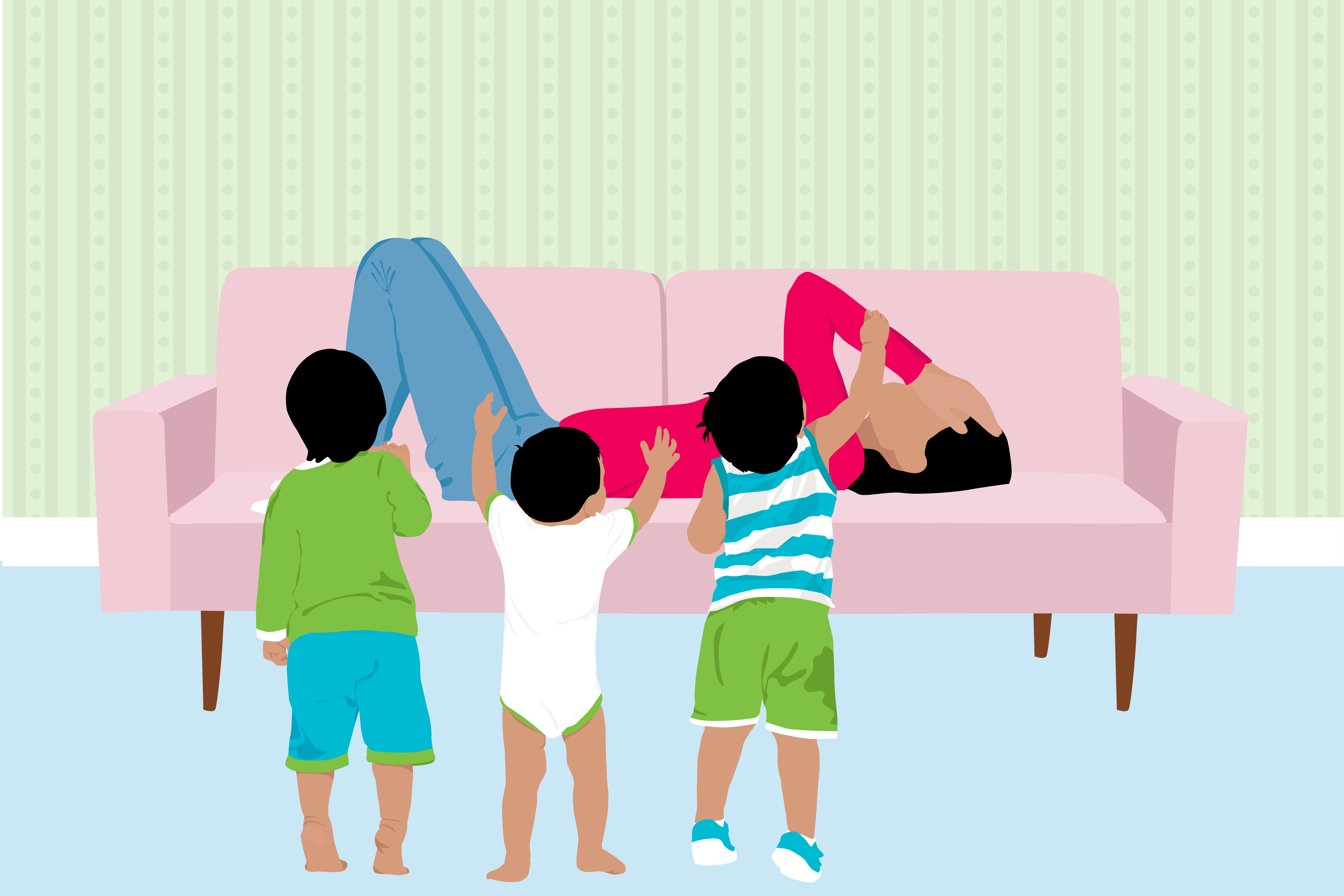
When I saw two pink lines on my fourth (and potentially final) pregnancy test, I was a bit excited, but mostly nervous for what life with four young children would be like—along with the impending weeks of nausea and pure exhaustion, with toddlers crawling over me begging to build Batmobiles.
I dutifully made my first prenatal appointment and calculated my due date online, feeling huffy that it would fall both during an out-of-town family reunion and also during the most stressful month at work. But the one thought that never crossed my mind was that we may never make it to that date.
Eleven weeks later, I learned there was no heartbeat on the ultrasound. I felt completely unprepared, especially since I had no symptoms and didn't think I'd have a miscarriage after having three previous healthy baby births. My sweet doctor held my arm and said despite having three healthy babies in a row, each pregnancy carried the same miscarriage risk for a "typical" pregnancy in women 35 or younger.
Yet, I also felt guilty at my previously nonchalant feelings toward the pregnancy, that I hadn't savored every moment and enjoyed the journey. But most of all, I had no idea the next few weeks of my life would include a lot of grieving, a struggle to parent my kids, and a lack of support when I needed it most.
I Found a Support Group Proving I Wasn’t Alone
As I processed the miscarriage and did what everyone recommended by "taking time to grieve," I felt I needed to talk to other mothers who had experienced the same thing. I turned, as we often do, to the anonymity of an internet support group as a source of comfort through my miscarriage. I quickly found a group of women also dealing with loss after already having kids. Turns out, I wasn't alone in any of my feelings.
Other moms commiserated on their mom guilt as they still had children expecting them to get up and parent, even when they needed time to rest on the couch. I found immense comfort hugging the children I already had, but it was difficult parenting my rambunctious toddlers in the fog of postpartum life without a baby. My hormones went wild, extra weight stuck around without the benefit of nursing, and my children asked me often why my baby died.
The dichotomy of other children as a blessing and a burden after miscarriage is common, says Lindsey Henke, a maternal mental health psychotherapist specializing in infertility, perinatal loss, and the pregnancy that follows. "My clients who experience this also report struggling with finding time to grieve the baby they lost and managing the demands of their other living children," says Henke, also the founder and executive director of Pregnancy After Loss Support (PALS).
And often, these moms discover many loved ones aren't empathetic of their loss because of the fact they already have other children. "They often diminish her loss by saying inappropriate and insensitive things like, 'You already have three beautiful children,' or 'It wasn't meant to be,'" says Henke. "When friends and family do this, they disenfranchise a woman's grief over the loss of the baby she was planning to add to her family."
It's important, says Henke, for loved ones to be present and offer a listening ear. "All you have to do is say, 'This sounds really hard,' and 'I'm sorry you are hurting right now.'" Most of her clients report they would prefer if family members and friends actually say something that acknowledges their loss, instead of not saying anything at all. "But try to remember to stay away from platitudes and 'at least' never helped anyone," adds Henke.
Hopeful for the Future
After bouts of tears, what really helped me get through was seeing a therapist, journaling, and indulging in overpriced lattes. I also found comfort in statistics, as many moms in my online group circulated the fact that only about 1 percent of women have repeat miscarriages (two or more miscarriages in a row).
Samir Babayev, M.D., a reproductive endocrinologist and IVF Director at the Mayo Clinic, reassures women with a single miscarriage that it's most likely a one-time event, with just a slightly higher chance of another miscarriage with each loss. But he understands the negative feelings that can come from the loss—especially for those who are already mothers.
"Sometimes miscarriages that happen are very, very frustrating, more frustrating because of that confidence level that, 'I am fertile and can have a healthy child,'" says Dr. Babayev. But he points out, often patients he sees who had many healthy live births are now a bit older and trying to conceive again—and that's an important factor here since miscarriage risk increases with age.
Armed with my new knowledge of the numbers and a serious lesson in my miscarriage being out of my control, I look forward to the next time I'll see those two pink lines again. I hope to value my nausea with an appreciation that life is growing inside of me, rather than as an inconvenient nuisance. I want to welcome my exhaustion as evidence that my pregnancy is strong.
Most of all, I plan to value each moment of pregnancy as a gift, a day in which nothing is wrong, and hope is still alive. I plan to use a mantra Henke tells her patients: "A different pregnancy, a different baby, a different story with a different ending."





